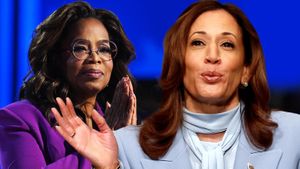Sri Lanka is standing at a crossroads, facing both dire economic challenges and significant political shifts. The country’s most recent parliamentary election, which took place on November 15, 2024, served as both a litmus test for President Anura Kumara Dissanayake and a pivotal moment for Sri Lankans grappling with the aftermath of economic upheaval and corruption scandals.
President Dissanayake, who is popularly known as AKD, was elected just months earlier, on the strength of his reform-driven agenda. His administration came to power promising sweeping changes and the end of decades-long dominance by the same political families and parties. Riding on the wave of anti-corruption sentiment, which became increasingly prevalent leading up to the elections, he sought to maximize his momentum with this parliamentary vote.
The snap election of 2024, called by Dissanayake, was termed as strategic, hoping to secure enough seats for his National People’s Power (NPP) party to facilitate his ambitious reform agenda. Until then, the NPP had struggled, with only three seats won during the previous parliamentary elections. With public interest high, analysts were curious to see if the president's popularity—gaining over 42 percent of the vote previously—would translate effectively for his party.
At the core of Dissanayake’s appeal is his clear commitment to curbing corruption and reforming governance. Yet, some challenges loom. Notably, his cabinet comprises just three members with little prior governing experience, and this absence of seasoned political operators has raised concerns among skeptics who question his ability to navigate complex parliamentary processes and push through necessary reforms.
Dissanayake’s main opposition now springs from parties like the Samagi Jana Balawegaya, led by Sajith Premadasa, and the New Democratic Front, which counts former President Ranil Wickremesinghe as its notable supporter. These parties rallied against Dissanayake, hoping to reclaim voter trust after losing the previous presidential election. Yet, recent voter enthusiasm appears dampened when compared to the heightened engagement seen during the presidential elections, which were overtaken by charisma and personality politics.
Economic struggles are at the forefront of voters’ minds as they head to the polls. Sri Lanka has seen substantial prices spike for everyday essentials, like food and fuel, since the country entered agreements with the International Monetary Fund (IMF) to secure a $2.9 billion loan. The austerity measures tied to these agreements have drawn significant public ire. While former President Wickremesinghe has faced blame for the dire economic conditions, he is also credited with crafting the financial stabilization plan required by the IMF. Dissanayake’s potential shift to renegotiate these austerity terms promises some relief for weary citizens.
Despite his fresh face and popular backing, Dissanayake faces the challenge of addressing Sri Lanka’s pressing issues without alienation of minority voters. His opposition is scrambling to reconnect with discontented citizens after their electoral setbacks, aiming to portray themselves as viable alternatives capable of improving immediate economic situations. Major players like the Sri Lanka Freedom Party, Sri Lanka Podujana Peramuna, and the United National Party, once dominant forces, now find themselves sidelined and struggling to reclaim their lost influences.
The November election was not merely about choosing representatives but also about testing Dissanayake’s ability to deliver on promises made to the electorate during his presidential campaign. Voters seem eager for genuine change and governability; if Dissanayake and the NPP fail to demonstrate capability, there may be dire consequences for their political future.
With public discontent evident, economists and political observers are keeping their fingers crossed, anticipating whether the NPP can rally the support it needs to forge ahead. Will Dissanayake’s campaign against corruption and for reform manage to alter the political fabric of Sri Lanka, or will he become yet another passing figure unable to make substantial progress?
While votes are counted and final results are tallied, one thing is certain: Sri Lankans are yearning for leaders who can genuinely relate to their daily struggles, bring accountability back to governance, and steer the island nation toward economic revival as it recuperates from years of uncertainty.



